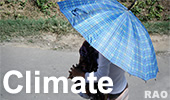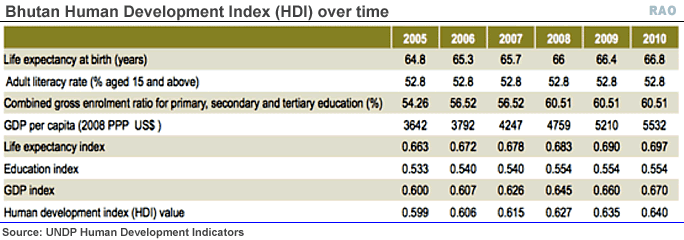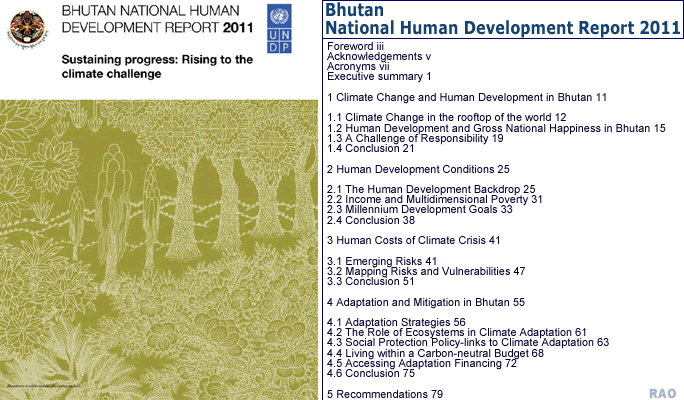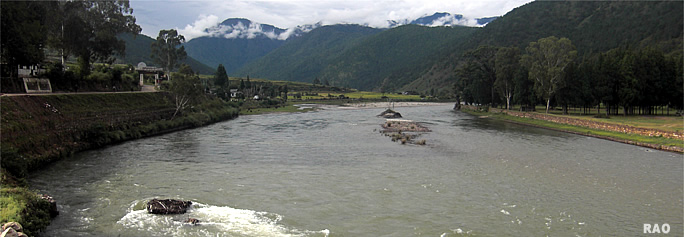 |
Bhutan Climate |
 |
Bhutan Information |
|
|
 |
|
Bhutan should mainstream climate change
|
 |
Bhutan's environmental policies, which are admired world over, are at risk of reversal from the threats of climate change.
This is a challenge to which the Bhutanese must rise to, although it's not of its making, stated the recently launched Human Development Report.
"Sustaining Bhutan's human development progress must form a national priority and the basis for international cooperation," the report stated. "Actions to address climate change by the government should now be aligned by the Five Year Plans."
At the moment, there is no specific national policy or program for climate change adaptation and mitigation for Bhutan to guide external assistance, apart from the National Adaptation Plan of Action.
Mainstreaming environment into policies is one of the 14 recommendations the report has made for Bhutan to address the challenges of climate change.
Bhutan needs to have a framework in place to guide and implement how it would remain carbon neutral, a pledge it has made to the world. "There is now an urgent need for the country to draw up an integrated strategy and implementation action plan beyond remaining carbon neutral," the report stated.
For this, Bhutan needs financial and technical assistance in instituting measures that will meet both mitigation and adaptation needs specific to local areas, the report said.
Another recommendation is to strengthen research and capacity development on climate change to produce reliable and accurate information.
It should also develop the meteorological and hydrological services by improving the capacity to collect and analyse weather data, as well as prepare early warning and hazard forecasting.
The report recommends Bhutan to promote green industry and stated that its needs to curtail consumption of fossil fuels by industries to reduce greenhouse gas emissions.
Due to climate change, the main potential impacts in Bhutan are water related and could influence the development of the hydropower sector and agriculture, the report found. It therefore recommends measures to address climate sensitivities in these areas.
One in three farmers report food insufficiency and subsistence agriculture is under threat by climate change, the report said.
Another important recommendation is to protect education infrastructure from climate shocks, and to make climate education part of curricula.
"Link targets and strategies for achieving universal primary education to strategies for ensuring that every school built is climate resilient," the report stated.
Bhutan should also provide psychological wellbeing services to climate victims and survivors.
"Human development is at acute risk of stalling or reversal due to climate shocks," the report stated. "This is a concern that must come to the centre of Bhutan policy design, development strategies and implementation."
 |
| Contributed by Sonam Pelden , Kuensel, Bhutan's National Newspaper, 05. September 2011 |
| Hindu Kush-Himalayan (HKH) region |
 |
top
|
Report
|
 |
top
| Links
|
 |
 |
 |
External
links |
 |
| Bhutan's Glacial Lakes and GLOF |
 |
| Information on Bhutan |
 |
|







